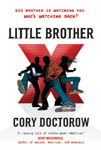
 The SFFaudio Podcast #408 – Jesse, Paul, Marissa, and Maissa discuss Friday by Robert A. Heinlein
The SFFaudio Podcast #408 – Jesse, Paul, Marissa, and Maissa discuss Friday by Robert A. Heinlein
Talked about on today’s show:
1982, the last readable Heinlein novel, head-shaking, one of the most awkward books, transgender stuff, a New York times article, I Will Fear No Evil, body swap, an old man in a young woman’s body, Predestination (2014), All You Zombies, sex-change and time travel, another example of a Heinlein character getting a sex-change, The Cat Who Walks Through Walls, The Moon Is A Harsh Mistress, even the computer is gender fluid, Podkayne Of Mars, Heinlein is the man in Science Fiction who really believes in women, the spring of 1991, re-reading experience, characters who defy human emotion and reality, made of human DNA, the Pinocchio story, focusing on the overbuilding, not just sex but odd sex, anti-male homosexuality but he likes lesbianism, a whiff of – but no sex on screen, Red Thursday, there’s a rape at the beginning and she marries her rapist at the end, it needs an editor, losing track of plotting, he let me pee, he’s a nice rapist, it makes sense!, Stranger In A Strange Land, what do we do about it?, horrible Heinlein thoughts, a lot of “doxy” training, an enhanced person vs. an artificial person, increased sexuality bred into them?, Dr. Baldwin engineered her, Gulf by Robert A. Heinlein, supermen, Olympia, late Heinlein is giving up on what early Heinlein wrote, travel reading, line marriages and serial marriages, making families, Christchurch, Winnipeg, Heinlein went to a swingers party and said “let’s do this all the time”, seeing a person’s mind over time, a plotless meandering travelogue/memoir, so many coincidences, that just happened to happen?, from set-piece to set piece, Bellingham, the AP guy never comes back, Chekhov’s gun that turns out to be a red herring, it wasn’t serialized for Playboy but should have been, sex for sex-sake, he’s got the 1997 World Wide Web in this book, Orson Scott Card, Ender’s Game did forums, A Fire Upon The Deep by Vernor Vinge, Hathitrust, terminals vs. PCs, kittens, cats, how many breakfasts, hungry the whole time, that “triggered” me, Jesse explains this book, Canada, California, Las Vegas, New Zealand, Australia, credit cards, she takes his Diner’s Club card, clothing, Heinlein went on a cruise, transient ischemic attack (TIA), Grumbles From The Grave, lots of eating, good food, cruise ship food, movies, cruise-like, sitting at the captain’s table, Heinlein being respected, touring the United States, crazy governments, “long pig” = human pig, rich “slitch”, playing psychoanalyst, the Earth is doomed, Heinlein is obsessed with the frontier, Time Enough For Love, the frontier hypothesis, racism you wouldn’t notice, law and order in peaceful British Canada, the remainders of the US, the Bear Flag Republic of California, the Free State of Las Vegas, Vicksburg, the Chicago Imperium includes Minnesota, getting Paul’s revolution on, everybody is Amish now, driving draft horses, semi-ballistic skyport, the world’s best batteries: shipstones, Ayn Rand, a libertarian streak, the Galt’s Gulch approach to patents, an unresolved plot point, an internal revolt, they own everything, making an argument, an analogy for the oil industry, s-groups, freeing women up to work, Friday can run 30 km per hour, rolling around on the floor with kittens and babies, housewives, the lesbian couple-ship with Goldie, tension between roles of women, all those contradictions, why is Friday sterile, childless Heinleins, write what you want, Heinlein as a gold bug, making America great again by tearing down the wall between the USA and Mexico, pushing gold hard, politeness is society, no flame wars on Heinlein’s internet, paperbooks vs. ebooks, Google book scans, nobody knew about the internet, the pay internet, the pay web, SOPA and PIPA, a free and open internet, Friday‘s enthusiasm for the web was realistic, I can learn everything, you have no excuse today for not knowing everything, know what you don’t know and don’t talk about it, learning about the world by reading Heinlein novels, the word “knave”, The Queen of Hearts, claques, stylites, particularism, secessionist California, Texas, a balkanized USA, Job: A Comedy Of Justice, alternate dimensions, the Rapture,
The Queen of Hearts
She made some tarts,
All on a summer’s day;
The Knave of Hearts
He stole those tarts,
And took them clean away.
The King of Hearts
Called for the tarts,
And beat the knave full sore;
The Knave of Hearts
Brought back the tarts,
And vowed he’d steal no more.
its so easy not to appreciate all we have, I pity all the fools, The Number Of The Beast, Edgar Rice Burroughs, Gay Deceiver, there’s no way to fix this!, To Sail Beyond The Sunset, the thing he has about incest, Heinlein’s Future History, Philip K. Dick does the opposite, it all hangs together, someone is hanging himself in a closet, Heinlein’s periods, The Cat Who Walks Through Walls, The Door Into Summer, Professor Eric S. Rabkin, walls dilate open, women: I kinda wanna be one, The Puppet Masters, a similar organization, a boss with a bunch of agents, the boss just dies, writing the novel with a pair of dice or the I Ching, weird coincidences, part of the story just falls away, the Dungeon Master, Friday as a pick-a-path book, on the whole we enjoyed it, the writing style, Hillary Huber was the narrator for Blackstone Audio version, a fun listen, I wouldn’t say that I liked it, fun in places, what is an artificial person, if you prick me do I not leak?, people born of three parents, a future person, GMO fruit vs. organic fruit, people have been fucking with fruit forever, Jesse expounds on apples, all apples for harvest are grafts, Maissa expounds on bananas, Paul expounds on corn, corn is in everything in the USA, you’re 80% corn, the enhanced talking dog, kobold miners, Saturn’s Children by Charles Stross, the main character is a robot, no biological creatures, the illegitimate worries that Friday has are programmed into the main character of Saturn’s Children, a romp novel with everybody dead, straight out of Heinlein’s subconscious, Reading, Short & Deep, Who Can Replace A Man? by Brian Aldiss, Ian Tregillis’ Alchemy War novels, Spartacus, Botany Bay, there is a destiny that shapes our lives, an allusion to Hamlet
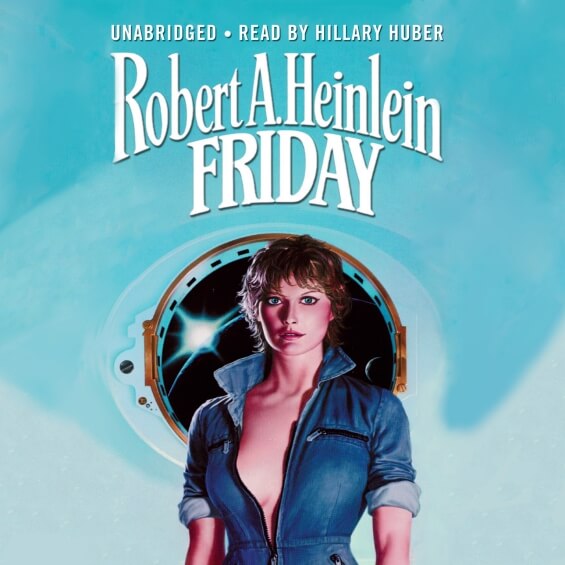
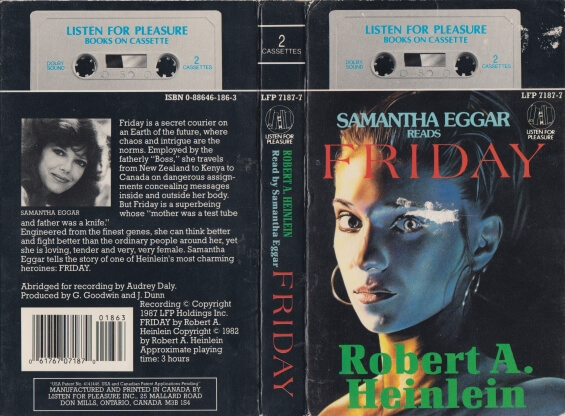
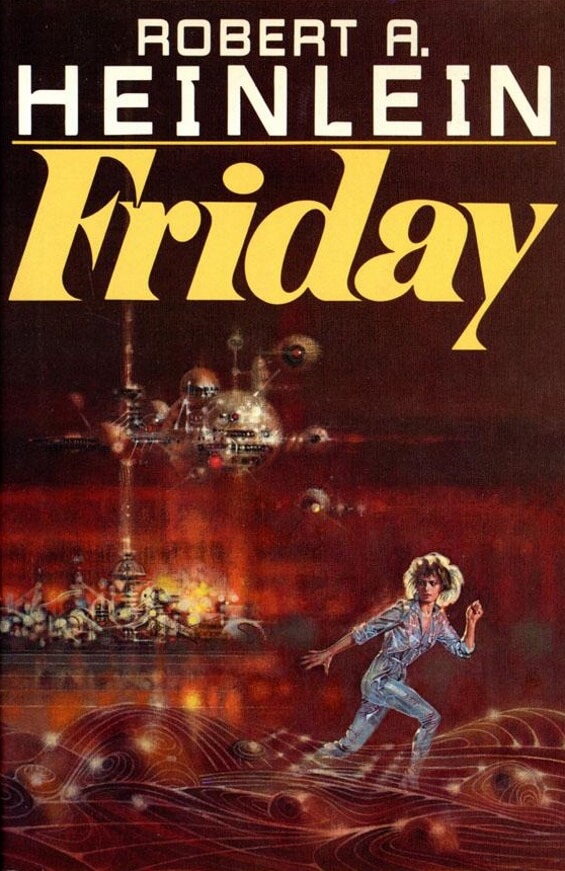
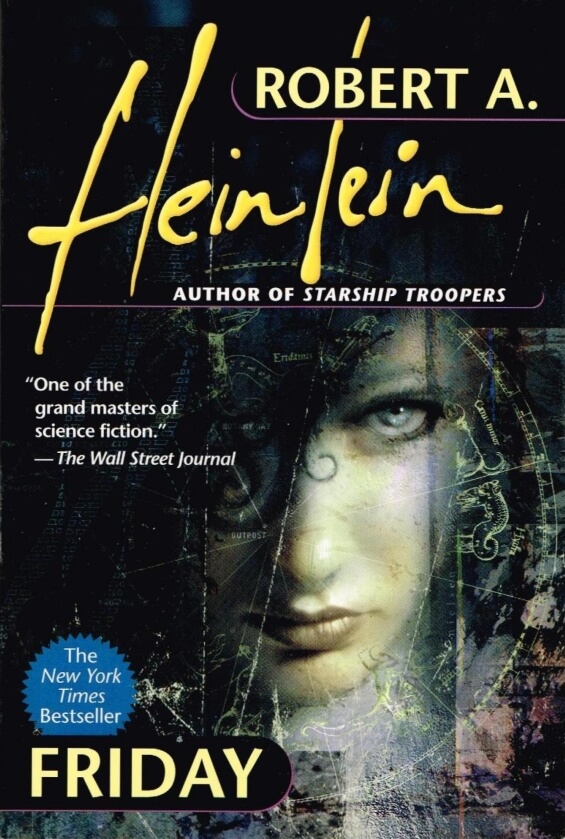
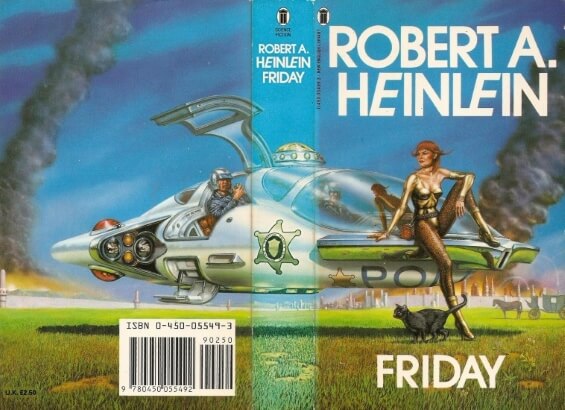
Posted by Jesse Willis

